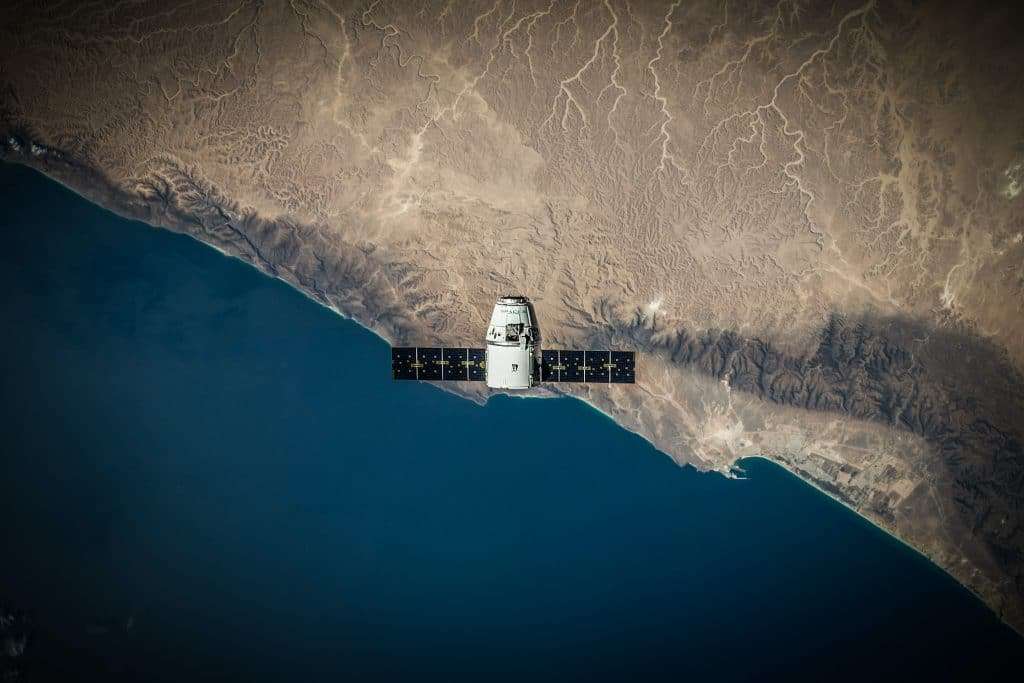As commercial space travel is poised to explode in the coming decades, For All Moonkind is aiming to establish an ethical framework.
For All Moonkind, Inc., a non-profit organization dedicated to safeguarding human heritage in outer space, has declared the establishment of the For All Moonkind’s Institute on Space Law and Ethics. The Institute’s mission is to promote the formulation and evolution of ethical foundations and a framework for responsible space conduct. It will serve as a platform for the exchange and innovation of ideas regarding law, morality, and ethics, advancing varied opinions on the interpretation and expansion of the law’s effect on human space activities.
“For All Moonkind’s Institute on Space Law and Ethics is a logical step forward for us in our commitment to responsible space activities.” Michelle L. D. Hanlon, Co-Founder and President of For All Moonkind and Executive Director of the Institute, said in a statement. “Recent incidents, including Ukraine’s use of commercial satellite imagery in defense against Russia and the numerous new space activities being contemplated by nations and private entities, have exposed significant gaps in space law. The process of filling those gaps must be guided by ethical values influenced by the diverse cultural experiences and traditions of humanity.”

The Institute’s Leadership will partner with carefully selected fellows to conduct research and analysis on the intricate legal and ethical issues arising from humanity’s increased reliance on and use of space, as well as its transition to a multiplanetary and genuinely spacefaring species. These studies are intended to advance and enrich discussions on space law and policy by, among other things, developing provocative concepts and philosophies. The Institute also aims to increase public awareness, broaden civil discourse, and encourage public support for space activities.
The primary objective of the For All Moonkind’s Institute on Space Law and Ethics is to decrease the possibility of conflict and ensure the sustainable exploration and utilization of space and its resources for the betterment of all mankind.
Hanlon will lead the Institute as its Executive Director, alongside other prominent Leaders, including Andy Aldrin, Namrata Goswami, Dan Hawk, Ram Jakhu, David Kendall, Marlene Losier, Sergio Marchesio, Claire Nelson, Nick Nielsen, Joe Pelton, John Rummel, Michael Walthemathe, and Frank White.
The announcement follows The Moon Registry, which For All Moonkind launched in 2021 to catalog items left on the moon’s surface dating back more than 50 years. It provides an overview of every robotic and human mission that made contact with the moon, including objects related to these excursions that remain on the moon today, such as commemorative medallions, flags, rovers, and scientific experiments.
Hanlon said that the history of humans on the moon belongs to everyone on Earth, and the organization is working to obtain international recognition and protection for sites in space that have universal historic value. As part of that effort, they want to make sure that details of humanity’s incredible journey to space — past, present, and future — are accessible to all.
Each of the Apollo moon landings has an entry for the lunar module descent stage that brought the astronauts to the surface, as well as a section to list individual equipment and mementos that crew members left behind.
“Visiting the moon was an incredible privilege and experience,” said Apollo 16 lunar module pilot Charlie Duke, the tenth person, and the youngest, to walk on the moon. “I can’t wait for someone to go back and find the picture of my family that I left behind. In the meantime, the For All Moonkind Moon Registry is a spectacular resource. It’s one small way to share this accomplishment of humanity with humanity,” said Duke, now 87.

“We challenge the international community – sovereign nations, national space agencies, and commercial entities – to join us in addressing the void left by current space law in respect of human heritage in space,” reads the For All Moonkind website. “Our entirely volunteer team of space lawyers and policymakers are working to develop reasonable and practical protocols that will balance development and preservation and include systems to select, manage and study relevant sites. In so doing, we seek to promote the exploration and development and open the debate on equally pressing issues of property and resource extraction.”
The establishment of the Institute on Space Law and Ethics by For All Moonkind reflects the organization’s commitment to responsible conduct in space activities. It acknowledges the pressing need for ethical foundations and a framework for the sustainable exploration and utilization of space and its resources. The Institute’s efforts to stimulate discussions on space law and policy and to increase public awareness and support for space activities are highly commendable. By doing so, the Institute’s leadership hopes to reduce the potential for conflict and enable humanity to reap the benefits of space exploration and utilization for generations to come.
Related on Ethos:


